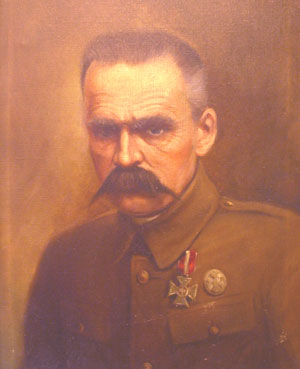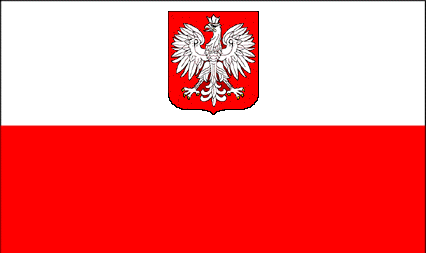|
 During his time, many Polish Americans considered Jozef Pilsudski to be the "George Washington of Poland." This revered general did more than any other single Pole, working primarily with Poles and on Polish soil, to achieve the independence of Poland after the first World War.
During his time, many Polish Americans considered Jozef Pilsudski to be the "George Washington of Poland." This revered general did more than any other single Pole, working primarily with Poles and on Polish soil, to achieve the independence of Poland after the first World War.
While in secondary school, Pilsudski first became an avid revolutionary. Then during his first year of medical school at the University of Kharkov in the Ukraine, he was expelled for suspicious political activities and a year later, in 1887, he was arrested for alleged participation in an assassination attempt on the Russian Czar, Alexander III. Though actually innocent, he nevertheless spent his complete five year sentence in Siberia. Through this episode, Pilsudski gained two important assets: time to plan for Poland's resistance against her oppressors, and credentials as a victim of the Czarist regime.Pilsudski attempted to mastermind Polish resistance by producing the underground newspaper, The Worker. After escaping imprisonment for this subversion, Pilsudski became legendary among his compatriots. After mobilizing his small army of riflemen against enemy forces during the first World War, he was again imprisoned, this time in Magdesburg. In Warsaw on Armistice Day, November 11, 1918, Pilsudski was acclaimed the hero and leader of independent Poland.
|

